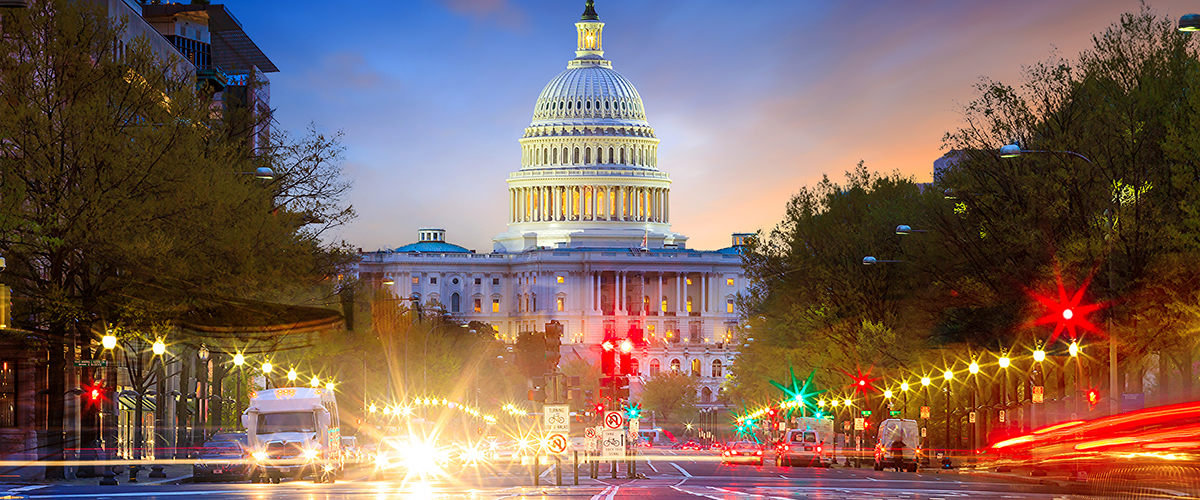The major group made up of local officials is urging the federal government to reform its cannabis policy.
The National League of Cities (NLC) this month passed two resolutions calling for the federal government to reschedule cannabis and provide the industry access to banking services.
Founded in 1924, the NLC is a major organization aimed at empowering local governments. It represents nearly 20,000 cities, towns, and villages throughout the United States.
The story and resolution passages were first reported and published by cannabis news site Marijuana Moment.
“This is the first time we’ve explicitly called for the federal rescheduling of marijuana,” Tom Martin, NLC’s director of communications, told Marijuana Moment in an email. “For the past five years or so, we’ve been asking the federal government to resolve the conflict between state and federal laws in regards to the banking issue.”
While 32 states have laws in place that allow legal use of marijuana, its possession, use, and sale are illegal under the federal Controlled Substances Act. The conflicting laws have hindered the cannabis industry by restricting research and prohibiting federal banking access.
NLC members voted on the policy resolutions while attending the NLC City Summit in Los Angeles.
Below is an overview of the pair of resolutions.
Resolving Conflicting State and Federal Cannabis Laws
The first resolution — “Calling to Resolve the Conflict Between State and Federal Cannabis Laws” – urges the Donald Trump Administration and Congress to clear up conflicting state and federal marijuana laws so that cannabis businesses can get access to financial services.
The resolution also calls for the federal government to “provide guidance to financial institutions that results in the cannabis market having access to the federally regulated banking system.”
Here’s an excerpt obtained by Marijuana Moment:
“Cannabis’ status as a Schedule I illicit substance on the Controlled Substances Act (CSA) and the CSA’s coupling with the Bank Secrecy Act have created a condition under which the cannabis industry has severely limited access to the federally-regulated banking industry, and this condition has led to a reliance on ‘cash only’ models that involve the transportation of large sums of paper money through cities, increase the risks of theft crimes and tax evasion, and deny large groups of business owners the capital needed to enter the market.”

Remove Cannabis From List of Schedule I Substances
The second resolution passed by the NLC – “In Support of Federal Efforts to Ensure State and Local Government Have the Authority to Regulate the Manufacturing, Distribution and Sale of Medical and Adult Use Marijuana” – calls on the federal government to remove marijuana from its list of Schedule I substances.
It also urges “Congress to pass legislation that would ensure states and local governments have the ability to establish laws and regulations on the manufacturing, distribution and sale of medical and adult-use cannabis within the state.”
The NLC argues that rescheduling cannabis would help ensure public health and give federal, state, and local governments the ability to set rules around age limitations and driving under the influence. It would also allow governments to regulate the growth, distribution, selling, and testing of cannabis.
Noting the Benefits of Legalization
In the NLC’s calls for federal marijuana reform, it also provided statistics exhibiting the economic potential of cannabis legalization, including:
- More than 122,814 jobs have been created in states where marijuana has been legalized.
- The cannabis industry has the potential of exceeding $24 billion by 2025.
- Tax revenue generated by states with legal marijuana has been used to fund police, school programs, housing programs, and drug treatment and mental health centers.
- Every $1 spent in the marijuana industry equates to between $2.13 and $2.40 in generated economic activity.
More on Marijuana
Following the midterm elections, there are now 10 states and Washington, D.C. that have legalized recreational marijuana for adults 21 and older, while 32 states and Washington, D.C. allow medical marijuana.
Keep up with the growing cannabis industry by regularly visiting the Medical Marijuana, Inc. news feed.







